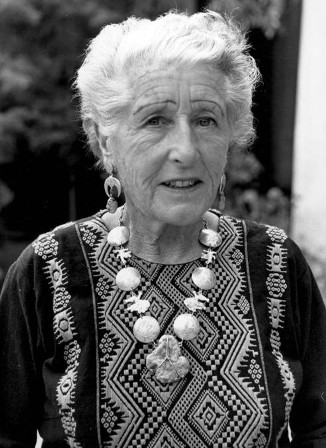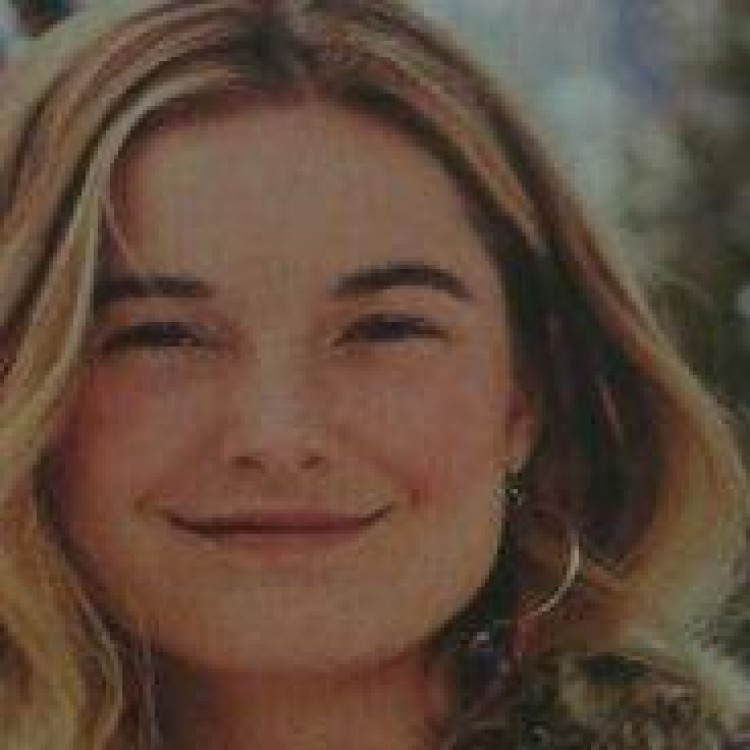Boundary Breakers, Freedom Fighters, Sheroes and Female Firsts
Bearing Witness

Born in 1901, pioneer rainforest activist Gertrude Elizabeth Loertsher’s fascination with native peoples began as a child in Switzerland when she read about American Indians and acted out the stories with her friends after school. She didn’t feel the same pull toward academia, however, and pursued horticulture and social work rather than a more traditional educational career. She spent a year in England with a Quaker family whose way of life and pacifist philosophy she found imminently appealing. After a failed marriage to a neighbor’s son back home in Bern, Trudi, as she liked to be called, traveled to Germany in the 1930s, where she was shocked by the rise of fascism. The daughter of a Jewish mother and a Protestant minister father, Trudi’s own sensibility toward peace and justice was poles apart from the Nazi party. Upon Hitler’s election as chancellor in 1933, the Nazis’ power was dominant; any actions or talk against it were treated as treason.
Trudi’s sympathies were entirely anti-Nazi, and she risked her life many times to get Nazi horror stories to the newspapers in her native Switzerland, outsmarting the ruling party of martinets and murderers again and again. Times got harder and getting out of Germany became increasingly difficult; Gertrude finally inveigled passage to France, where she worked for the Resistance, traveling to the United States to aid other European refugees. Upon returning to France, she was put in prison after the Nazi takeover.
Ultimately the Swiss government got her out of France, and she made her way to Mexico to rest and get some distance from political strife. She developed a new interest in photography, making female factory workers her subject. Her photographs were compelling, filled with both beauty and depth in faces weathered by difficult lives. Mexico itself filled Trudi with awe; it was both a new home and a muse catapulting her toward discovery. She traveled the vast country in search of the meaning she knew lay in the land. Her first sight of the Mexican jungle was an epiphany: “This jungle filled me with a sense of wonder that has never left me,” she noted many years later. The mysterious forest and Lacandon Indians who lived there showed her a way to live in the world that was vastly different from her European background. Trudi learned from these people and studied their traditional ways only to discover their life in the jungle was in jeopardy; Mexican peasants were being relocated to the rainforest state of Chiapas bordering Guatemala and left to scratch a living from the dirt. Trudi’s life was in flux, as well. She met and married Danish archeologist, cartographer, and traveler, Franz Blom, who shared Trudi’s fascination with the Mayan culture and Indian peoples. Together, they pursued their love of the rainforest and thirst for knowledge, mapping the land and recording their findings in journals and Trudi’s photography, which they published. The husband and wife team came to a deep understanding of the Lacondan rainforest and its people. They perceived the fragility of this environment and sought to preserve it, founding Na Bolom, a research institution and center for visiting scholars, travelers, and anyone wanting to learn about the Mayan civilization and its modern descendants.
Trudi also discovered a practical way to undo some of the damage Lacandones had suffered. She invited tree experts to assist her in establishing a nursery to replant the rainforest, making the trees free to anyone who would plant them. Trudi worked diligently on the lecture circuit to pay for the seedlings, building the annual crop to 30,000 trees a year before her death in 1993 (she was ninety-two). Na Bolom carries on her work educating and reforesting the Mayan rainforest today.
“The time has come for us to wake up to what we are doing and take steps to stop this destruction.”
— Gertrude Blom
This excerpt is from The Book of Awesome Women by Becca Anderson, which is available now through Amazon and Mango Media.
Occasionally, some of your visitors may see an advertisement here,
as well as a Privacy & Cookies banner at the bottom of the page.
You can hide ads completely by upgrading to one of our paid plans.
![]()




